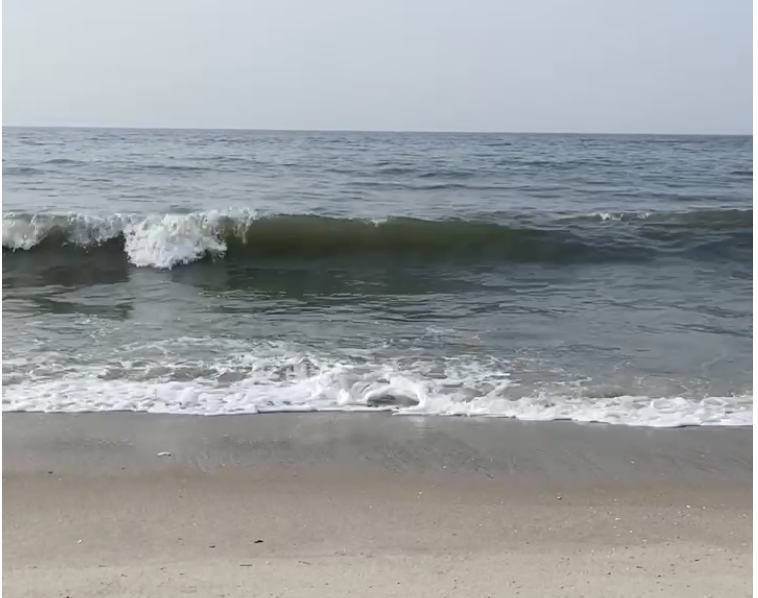What’s your relationship to rest?
I was at Fire Island this past weekend for a friend’s birthday weekend soirée, and it was a great way to kick off the summer. It was also a reminder to me about how important it is to schedule rest time.
I used to live at a baseline of hypervigilance , so I’m relearning my relationship to rest. In the past, truly resting never felt like an option because I was always on guard for danger, and not just physical danger. I always had an anxious feeling that if I wasn’t always working, then something in my life was sure to go catastrophically awry (so far nothing has, whew!).
Our culture also glorifies an unrelenting work ethic – which as a martial artist, I had bought into and subscribed to for many years. I used to exercise 5-6 days a week and train through injuries. Plus, I was taught the warrior ethos of “always be ready,” meaning be ready to fight no matter what — ready for crisis, for things to go wrong, to spring into action, always prepare for the worst. There’s nothing wrong with this orientation — because at some point in time, those attributes did help our ancestors survive (and maybe us too). But to be “on” all the time is unsustainable, and even warriors have to take off their armor and chillax.
Our ability to rest is very much about how safe we feel. Of course, much of our learned behavior around this is based on childhood coping strategies — whether or not you felt you had to be constantly monitoring your environment and strategizing to avoid danger. In my self defense classes, I talk a lot about being able to discern what actually is life threatening and what isn’t based on the signals that your body is giving you — but only you can do the work of sorting through if your body is reacting to what happened to you in the past or what’s actually happening in the present moment. And this ability to discern can be applied to other parts of your life. You probably won’t die if you don’t respond to your boss’s email immediately (even though it might feel like it). This is the work of healing our nervous systems and taking ownership of our lives — learning and letting go of what doesn’t serve us anymore.
Repatterning old beliefs and behaviors is a practice, and we can only change the things that we’re aware of. A healthy amount of planning is necessary for any trip or vacation, but so is a healthy amount of “go with the flow.” You can also craft a vacation or recovery time to get higher quality rest if you notice what works best for you and your nervous system. Here’s what I noticed about myself this past weekend, what worked for me, and things I’d like to be better at.
~ Being someone who is highly sensitive to my environment can be a double edge sword. But since I know this about myself, I can use this awareness to my advantage and plan to be in a destimulating environment. Being immersed in nature is a must. When I go to the beach or into the woods, I can physically feel my body start to slow down. For a vacation to be truly relaxing for me, being in nature feels like realigning to something deeply rejuvenating.
~ Finishing up work related things before I leave, and having a system in place that informs others that I’m unavailable, like an away email message, also gives me more permission to relax. I run a business with my husband, and I still took a peak a few times at our business email. While answering those emails made me feel better in the moment, it still gave me bit of an adrenaline spike. I’m also telling others that I’m available to answer work related emails on the weekends. Not something I want to reinforce. Mental note for next vacation: put an auto “away message” up on my emails.
~ I like a mix of light physical activity on vacations because it helps me to relax more. Being a total vacation sloth doesn’t feel good for my body (my muscles and lower back starts to ache, which is my body’s cue to me that I’ve been sitting around too long) so a vacation where I get to hike, swim, or do some kind of exercise that’s different from my usual weight lifting or martial art training feels really good. A friend on this trip was doing a plank challenge for himself and so we all planked on the beach together in solidarity. Plus I went for a run on the beach one day and on multiple bike rides.
What’s your relationship to rest? How do you know your body is actually relaxed? The same way we can identify the sensations and signals our body gives us when we’re in danger (for example: elevated heart rate, sweaty palms, queasy stomach, tightness in chest, etc). Our body also tells us when we’re adequately at rest. For me, it’s when my heart beats slower, my breathing is deeper, and I yawn a lot . When I can fall asleep in a public place (like I did on the beach this weekend), then I know I feel safe enough to let my guard down and relax.
Each one of us has our own optimal healthy combination of activity and rest that only you can craft based on your own body awareness. This recipe will change depending on your age, fitness goals, or just the particular chapter or season of your life that you might be in. And even if you don’t do martial arts, I know you’re probably fighting for your most beautiful life, which needs the best, well-rested version of you to live it.

